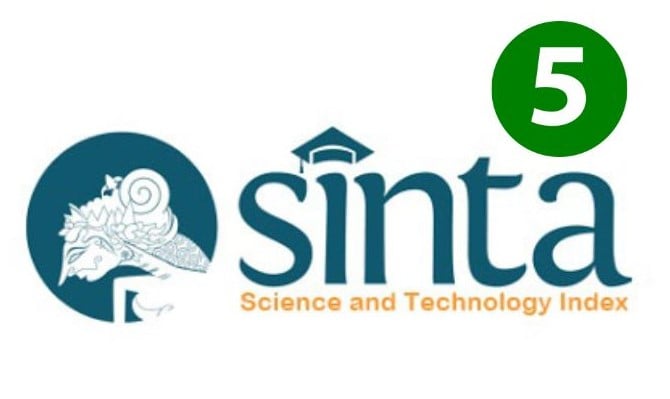Increasing Student Learning Activities in Social Studies through the Syndicate Group Method
DOI:
https://doi.org/10.26740/sosearch.v5n1.p40-47Keywords:
syndicate group, learning activity, learning outcomesAbstract
This study aims to implement the syndicate group discussion approach to enhance the learning engagement of seventh-grade students in Social Studies (IPS), specifically on the topic of socio-cultural issues, at MTs Almaarif 01 Singosari. The method employed is classroom action research (CAR), utilizing field notes and observation sheets for data collection. The data gathered were analyzed descriptively to evaluate the changes occurring in the learning process. The results of the study indicate that the syndicate group discussion approach is effective in improving students' activity and learning outcomes. This effectiveness is evidenced by a significant increase in the average student score, which rose by 23.61 points from the first cycle to the second. This approach enables students to actively engage in discussions, enhance critical thinking skills, and deepen their understanding of the material. Based on these findings, it is recommended that teachers focus more on classroom management, including effectively utilizing learning analysis and controlling discussion time to optimize the learning process. Additionally, it is crucial for teachers to ensure that every group member has an opportunity to contribute, ensuring the success of this approach is evenly distributed among all students.
Downloads
References
Afifah, N. (2017). Pembelajaran Dengan Metode Diskusi Kelas. Tarbawiyah : Jurnal Ilmiah Pendidikan, 11(01), Article 01.
Amin, S., & Khotimah, S. (2016). Penerapan Metode Diskusi Syndicate Group Untuk Meningkatkan Keaktifan Belajar Siswa Kelas V SDN Beru 02 Wlingi. J-PIPS (Jurnal Pendidikan Ilmu Pengetahuan Sosial), 2(2), Article 2. https://doi.org/10.18860/jpips.v2i2.6843
Andriani, F., Kamaruddin, M. I., & Sari, L. P. (2024). Syndicate Group Method for Newborn Care with the Knowledge of Posyandu Cadres in the Working Area of the Tamalanrea Health Center, Makassar City. International Journal of Health Sciences, 2(1), Article 1. https://doi.org/10.59585/ijhs.v2i1.262
Arikunto, S., Supardi, & Suhardjono. (2021). Penelitian Tindakan Kelas: Edisi Revisi. Bumi Aksara.
Armansyah, A., Azmi, I., & Kalean, A. (2022). Syndicate Group Learning Instruction: An Interactive Way to Improve Students’ Activities and Learning Outcomes. Journal of Authentic Research, 1(2), Article 2. https://doi.org/10.36312/jar.v1i2.1528
Bai, S., Hew, K. F., & Huang, B. (2020). Does Gamification Improve Student Learning Outcome? Evidence From a Meta-Analysis and Synthesis of Qualitative Data in Educational Contexts. Educational Research Review, 30, 100322. https://doi.org/10.1016/j.edurev.2020.100322
Bashith, A., & Amin, S. (2017). The Effect of Problem Based Learning on EFL Students Critical Thinking Skill and Learning Outcome. Al-Ta Lim Journal, 24(2), Article 2. https://doi.org/10.15548/jt.v24i2.271
Daigavane, P., Dangore, S., Ingole, A., Pathak, S., Durge, K., & Niranjane, P. (2021). Comparative Evaluation of Syndicate with Conventional Method of Case Discussion by the Post Graduates from Dept. Of Orthodontics. Journal of Pharmaceutical Research International, 240–244. https://doi.org/10.9734/jpri/2021/v33i61A35463
Damayanti, N. A. (2024). Peran Guru dalam Menentukan Model Pembelajaran Berbasis Proyek (PjBL) di Kelas Rendah Upaya untuk Meningkatkan Minat Belajar Peserta Didik di Sekolah. Jurnal Pendidikan Guru Sekolah Dasar, 1(2), 14–14. https://doi.org/10.47134/pgsd.v1i2.177
Hartadiyati, E., Anisa, L. N., Meilani, A. R., Munasyifa, A., Sari, L. N., & Bashoriyah, R. (2023). Manajemen Kelas Yang Efektif pada Kelas Indoor dengan Menggunakan Discovery Learning. BIOFAIR, 128–154.
Huang, R., Ritzhaupt, A. D., Sommer, M., Zhu, J., Stephen, A., Valle, N., Hampton, J., & Li, J. (2020). The Impact of Gamification in Educational Settings on Student Learning Outcomes: A Meta-Analysis. Educational Technology Research and Development, 68(4), 1875–1901. https://doi.org/10.1007/s11423-020-09807-z
Lismaya, L. (2019). Berpikir Kritis & PBL: (Problem Based Learning). Media Sahbat Cendekia.
Mea, F. (2024). Peningkatan Efektivitas Pembelajaran Melalui Kreativitas dan Inovasi Guru Dalam Menciptakan Kelas yang Dinamis. Inculco Journal of Christian Education, 4(3), Article 3. https://doi.org/10.59404/ijce.v4i3.190
Popenici, S., & Millar, V. (2015). Writing Learning Outcomes. A Practical Guide for Academics. https://doi.org/10.13140/RG.2.1.1215.6246
Sari, R. K., Chan, F., Hayati, D. K., Syaferi, A., & Sa’diah, H. (2021). Analisis Faktor Rendahnya Motivasi Belajar Siswa dalam Proses Pembelajaran IPA di SD Negeri 80/I Rengas Condong Kecamatan Muara Bulian. Al Jahiz: Journal of Biology Education Research, 1(2), Article 2. https://doi.org/10.32332/al-jahiz.v1i2.3146
Sujarwa, A., & Sukoco, S. (2017). Penerapan Metode Pembelajaran Diskusi Tipe Syndicate Group Untuk Meningkatkan Motivasi dan Prestasi Belajar Mata Pelajaran TOD. E-Jurnal Pendidikan Teknik Otomotif - S1, 19(1), Article 1. https://journal.student.uny.ac.id/index.php/otomotif-s1/article/view/10140
Susilo, H., Chotimah, H., & Sari, Y. D. (2022). Penelitian Tindakan Kelas. Media Nusa Creative (MNC Publishing).
Susilowati, D. (2018). Penelitian Tindakan Kelas (PTK) Solusi Alternatif Problematika Pembelajaran. JURNAL ILMIAH EDUNOMIKA, 2(01), Article 01. https://doi.org/10.29040/jie.v2i01.175
Wang, J., Chen, Y., Hao, S., Peng, X., & Hu, L. (2019). Deep Learning For Sensor-Based Activity Recognition: A Survey. Pattern Recognition Letters, 119, 3–11. https://doi.org/10.1016/j.patrec.2018.02.010
Wicaksono, A. (2019). Penerapan Pendekatan Keterampilan Proses Untuk Meningkatkan Hasil Belajar Siswa pada Materi Keliling dan Luas Lingkaran di Kelas VIII Al Biruni SMP Islam Terpadu Al Fahmi Palu. Guru Tua : Jurnal Pendidikan Dan Pembelajaran, 2(1), Article 1. https://doi.org/10.31970/gurutua.v2i1.17
Widodo, A., & Nursaptini, N. (2020). Problematika Pembelajaran Daring dalam Perspektif Mahasiswa. ELSE (Elementary School Education Journal): Jurnal Pendidikan dan Pembelajaran Sekolah Dasar, 4(2), Article 2. https://doi.org/10.30651/else.v4i2.5340
Wolverton, C., & Hollier, B. G. (2022). Guidelines for Incorporating Active Learning into the Design of Online Management Courses Utilizing the Successive Approximation Model (SAM). International Journal of Education and Development Using Information and Communication Technology, 18(1), 264–274.
 Abstract views: 123
,
Abstract views: 123
, PDF Downloads: 90
PDF Downloads: 90




.png)

.png)

.png)
.png)
.png)
.png)
